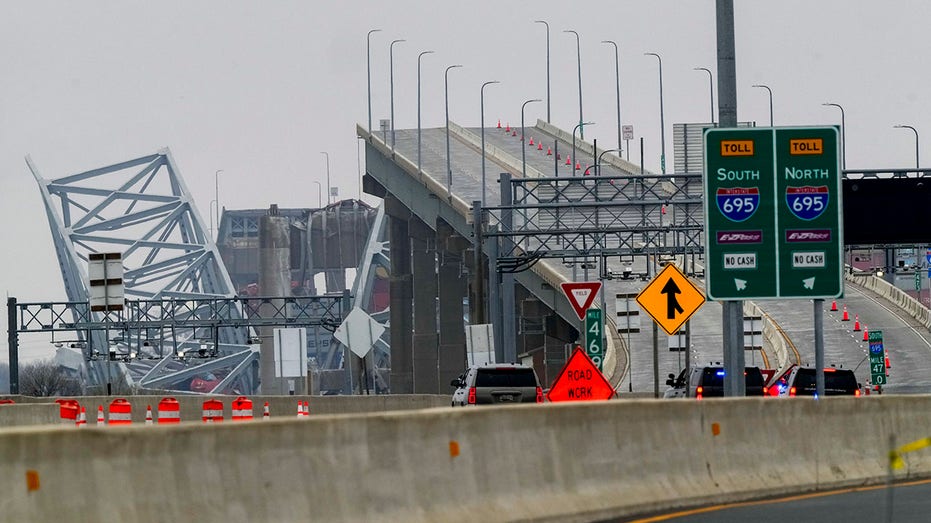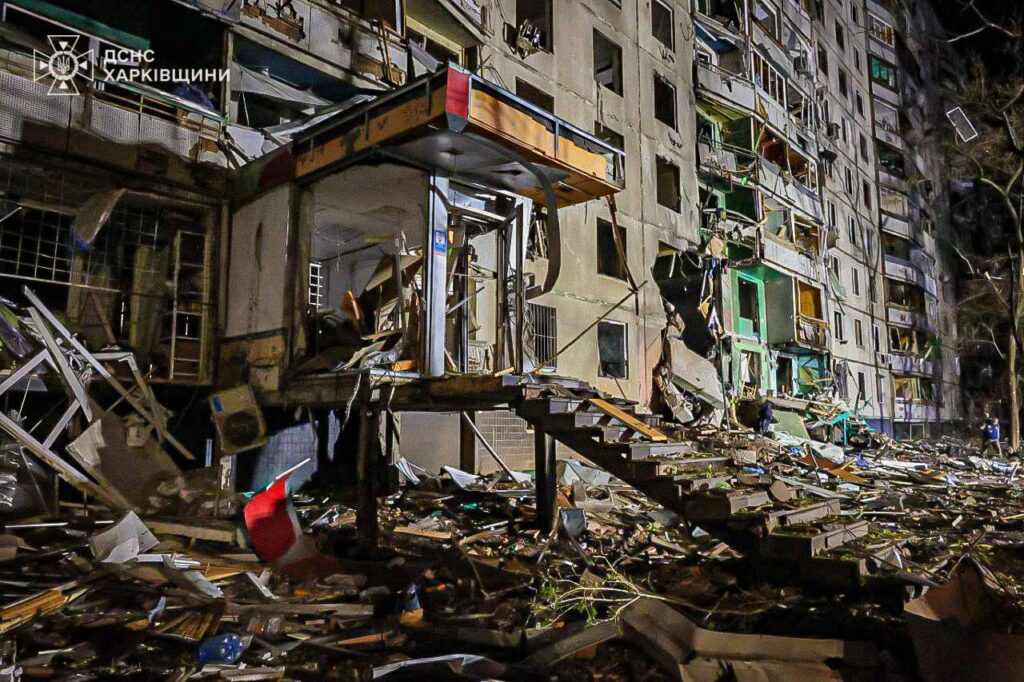Francis Scott Key Bridge: US Army vet speculates on what went wrong before collapse
A former U.S. Army veteran believes the cargo ship that struck the Francis Scott Key Bridge, leading to its collapse, was likely suffering electrical issues after it left the port.

A former U.S. Army and Marine veteran who spoke with Fox News Digital said Thursday that the Dali cargo ship that struck the Francis Scott Key Bridge, leading to its collapse, was likely suffering electrical issues soon after it left the port.
"For a vessel to have some sort of power outage would imply that there was an electrical systems issue within the ship itself," Jason Nelson said.
Nelson, who was stationed 10 yards from the bridge at Fort McHenry during his final two years in the Army, said the ship could clearly be seen moving in from the southwest and making a starboard, turning toward the bridge and then eventually drifting into the pylon.
"When the vessel power goes out, you see things key things happening. One you see the vessel keep drifting," Nelson said. "When you have them moving, they don’t stop on a dime. When the power comes back on, you see them make an adjustment."
MARYLAND GOV. WES MOORE SAYS ‘THERE IS NOTHING WE WILL NOT DO’ ON RECOVERY EFFORTS
The most likely scenario, Nelson argued, what that the crew had done an emergency maneuver and didn’t have time to correct.
"They should have done a loop and then brought it in. If they’d noticed issues with it, it should have been stopped and come under the control of tugboats. So, none of that makes sense," Nelson said.
ORIOLES HONOR MARYLAND TRANSPORTATION AUTHORITY'S QUICK BRIDGE COLLAPSE RESPONSE BEFORE OPENING DAY
Two pilots were at the helm of the cargo ship Dali on Tuesday when it lost power and, minutes later, crashed into a pillar of the Francis Scott Key Bridge, causing the bridge to collapse and killed six construction workers.
The disaster has put this highly specialized role — in which a pilot temporarily takes control of a ship from its regular captain — under the spotlight.
So far, there is no indication the lead pilot on the Dali did anything wrong. Maritime experts say there was likely nothing the pilots could have done to stop the 95,000-ton ship from plowing into the bridge.
Harbor pilots who navigate massive ships in and out of Baltimore's port must often maneuver with just 2 feet of clearance from the channel floor and memorize charts, currents and every other possible maritime variable.
The ship sent out a mayday call, which gave just enough time for authorities to close the bridge to traffic and likely prevented further deaths. The lead pilot also dropped an anchor, issued steering commands and called for help from nearby tugboats, according to a preliminary timeline outlined by the National Transportation Safety Board.
But in the end, maritime experts say, there was likely nothing the pilots could have done to stop the 95,000-ton ship from plowing into the bridge.



